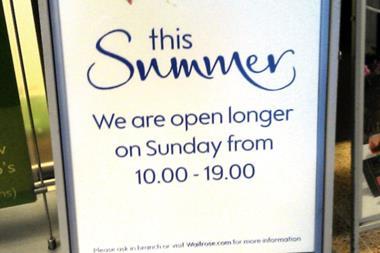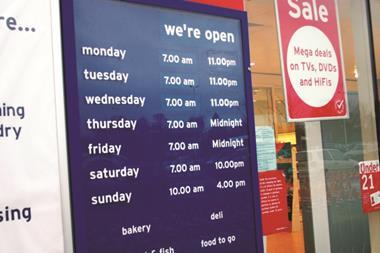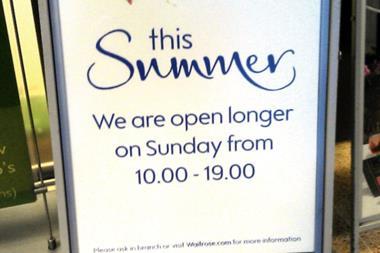The government has received a “significant number of responses” from a variety of stakeholders to its consultation on devolving Sunday trading powers to councils, as well as evidence highlighting the potential damage to high streets if the policy is enforced.
The Association of Convenience Stores’ submission to the consultation, which ended on September 16, revealed the results of a survey of local authority chief executives highlighting how the plans would benefit out-of-town stores over high streets and town centres.
The survey found that 52% of councils included out-of-town retail parks, out-of-town supermarkets and large shopping centres as their first or second preference for deregulation of shopping locations. In addition, 45% felt that they would be influenced by the decision of neighbouring authorities, suggesting a ‘domino effect’ where authorities will be more inclined to remove Sunday trading rules if others do so.
ACS chief executive James Lowman said: “The clear winners would be out-of-town retail parks and large superstores. While ministers think local authorities would use powers to help high streets, councils say they would deregulate hours for out-of-town stores and shopping centres.”
But a government spokesman told C-Store that it was “determined to give powers previously held in Whitehall to local people”.
The plans to liberalise Sunday trading laws also fail the government’s family test, according to research by the Social Market Foundation. The test, devised in 2014, is aimed at introducing “an explicit family perspective to the policy-making process”.
Social Market Foundation director Emran Mian said: “The risks to family life posed by proposed changes to Sunday trading are significant.”






















No comments yet